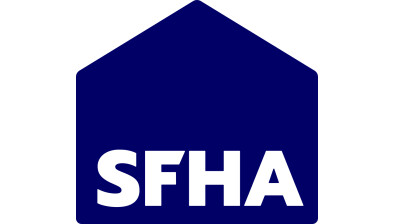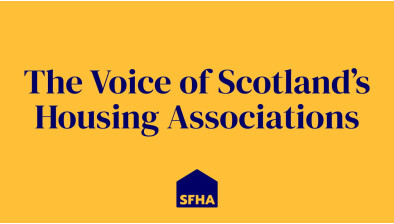Housing association evictions are a ’last resort action’, SFHA report finds

Sally Thomas
A new report that details the process for evictions in the social housing sector and highlights the work that housing associations and co-operatives carry out to help tenants to remain in their homes has been released today by the Scottish Federation of Housing Associations (SFHA).
Last year, as a result of the pandemic, the Scottish Government introduced changes to the process for evictions, including extending the notice period for eviction orders to six months and banning the enforcement of eviction orders (except in cases of criminal and anti-social behaviour) – the latter now only applicable in areas subject to Covid restriction levels three and four.
SFHA campaigned for evictions on the grounds of anti-social and criminal behaviour to be made exempt, and, in October 2020, the notice period required in such cases reverted to one month. With the current changes set to expire on September 30, SFHA has released its report, Avoiding Evictions and Managing Rent Arrears: Covid Recovery, to demonstrate that evictions by housing associations and co-operatives are a last resort action, carried out after a decree is granted by a sheriff, after all other avenues are exhausted.
David Bookbinder, director of the Glasgow and West of Scotland Forum of Housing Associations (GWSF), has previously highlighted issues with notice periods being applied across both the social and private rented sectors, while earlier this week, River Clyde Homes carried out three evictions of tenants who were involved in drug dealing and persistent anti-social behaviour.
The report found that evictions in the social housing sector are rare, with 764 carried out, of an approximate total of 290,000 properties let by social landlords (less than 0.3%), in 2019/20 before the pandemic.
The SFHA said housing associations and co-operatives work hard to help tenants who are struggling to pay their rent through tenancy sustainment services, which can include support to access benefits, budgeting advice, hardship funds and employability services. Social landlords arrange payment plans for tenants in rent arrears and will never evict someone who has agreed to, and is meeting, its conditions.
However, as set out in tenancy agreements, both tenants and social landlords have responsibilities to neighbours and communities and being able to evict tenants that are involved in anti-social or criminal behaviour is crucial to protecting others’ safety and wellbeing.
The report also highlights rent as vital for housing associations and co-operatives to remain financially viable as it is their main source of income. Rental income pays for housing services, repairs, and maintenance, and makes a key contribution to investment in new homes. Non-payment of rent by some tenants can have a knock-on effect on other tenants if their housing association or co-operative is faced with a level of arrears which affects its ability to invest in homes and services. SFHA said that, in a worst-case scenario, a social landlord could be forced to introduce overall rent increases if a large proportion of tenants built up significant arrears.
Sally Thomas, SFHA chief executive, said: “Every effort, over a long period of time – often years – is made by housing associations and co-operatives to prevent evictions through engagement with, and support for, tenants. Many steps are taken prior to serving a notice of proceedings and only a small number of legal actions taken by social landlords result in tenants losing their homes. This will only happen when all other measures have been exhausted and, in some cases, it is only when it gets to this point that a tenant will respond. However, even at this stage, housing associations will work with people, if they start engaging with them, to avoid the ultimate sanction of eviction.
“Evictions remain a crucial last resort action for housing associations and co-operatives in cases of anti-social or criminal behaviour or when a tenant will not respond to their social landlord and agree a payment plan. This enables social landlords to protect other tenants and the local community and to manage their financial and reputational risks.”
Sally Thomas added: “During the coronavirus pandemic, housing associations and co-operatives have increased their efforts to help tenants who are struggling to pay their rent. However, we know more needs to be done, and we are calling on the Scottish Government to increase investment through Discretionary Housing Payments and the Scottish Welfare Fund and to make non-repayable grant support available that social landlords can apply for on behalf on their tenants and is paid directly to them to meet rent payments.
“We would also like to see the Scottish Government leading on a major national campaign, with clear messaging, that highlights the importance of rent payment by tenants who are able to do so, details sources of support that are available to help tenants to pay their rent and explains how non-payment of rent could affect investment in homes and services in the future.
“We know the Scottish Government has been campaigning for the UK Government to make the £20 uplift to Universal Credit permanent, and we welcome its efforts. SFHA will continue to support this call too as the payment has helped to provide extra support to people whose finances have been affected by Covid.
“These three measures would comprise part of a managed transition back to the pre-pandemic evictions process. Our report has demonstrated the lengths to which housing associations have historically prioritised sustaining tenancies and avoiding evictions, and even more so in the last year. There is much to be learned from this practice within our sector, for all partners and other sectors, as we move further into the recovery process, supporting people to return to, and maintain, financial stability. This is in the long-term best interests of the people and communities of Scotland.”









